As it’s practically difficult and cumbersome to have the idea of stocks update about each product category. Thus, to resolve all your concerns regarding the inventory, the advanced inventory management software excellently manages your inventory. Thus, let’s find out about its definition.
What is Inventory Software?
Inventory software is a tool that records, updates, and streamlines the aspects of inventory into one platform. Additionally, the software keeps the information about the daily operations of the business. However, the technologically advanced Invoicing Software can track the inventory and provides the facility of inventory control to the businesses.
And with the real-time tracking of orders, the robust and reliable Inventory Management Software never lets you go out of stock. As you are aware of the stocks each time the sale takes place. And this way an organization can continue to fulfill the orders on time.
Now, let’s find out why it’s important to have Inventory Management Software for the business?
Top 6 Benefits of Inventory Management Software
1. Systematic & Organized Inventory
The recording and maintenance of inventory through the Inventory Management System keep things organized and systematic which further aids efficient operations. As it removes the decluttering of information. Additionally, Inventory management Software tracks the stocks on multiple sales channels.
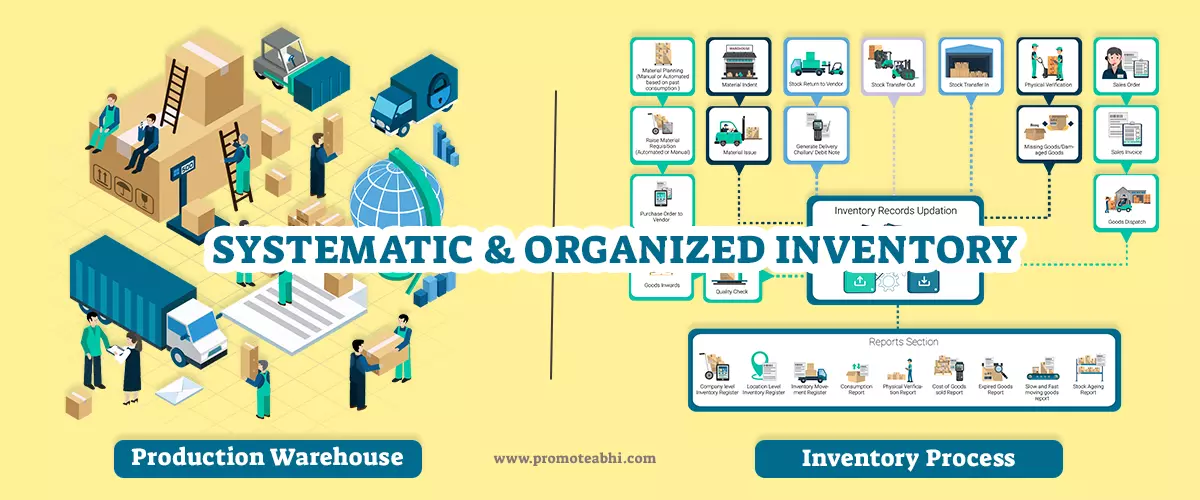
Likely, the advanced billing software is lashed with the feature to track multiple warehouses situated at different locations. Hence, the Inventory Management System lets you know about the complete inventory status of your manufacturing unit with a few clicks of the mouse.
2. Adequate for Decision Making
 The manageable Inventory Management System helps in assessing the right status of the stocks. Thus, the management of the company can make decisions based upon the underlying stocks. As one can map the storage space, and know about the real-time status of the stocks.
The manageable Inventory Management System helps in assessing the right status of the stocks. Thus, the management of the company can make decisions based upon the underlying stocks. As one can map the storage space, and know about the real-time status of the stocks.
Thereby, the organization is informed about each action and detail that takes place in the warehouse which further helps them in making sound decisions about the inventory with precision and accuracy.
3. Enhanced Customer Experience
Inventory Management System happens to be of vital utility for the e-commerce digital store. As the equipped software updates about the stocks each time the order is placed for the customers.
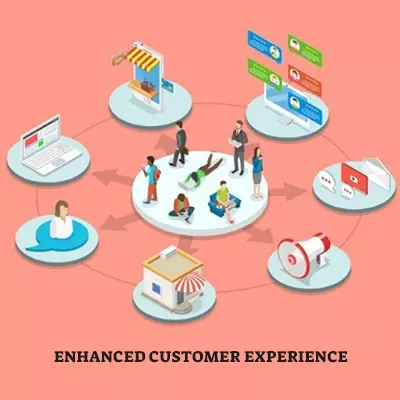
Additionally, the Invoicing Software provides clear insights about the stocks available to the customer while browsing through the different product sections and categories. Likely, it saves time for the retail outlet and leads towards providing a better consumer experience online.
Aids in Inventory Planning
Meanwhile, the pleasing consumer experience is favorable for an organization as it creates the difference and enables an organization to achieve a competitive edge over other players in the market. Furthermore, taking care of the consumer’s interest and time falls in the positive reputation of the brands online.
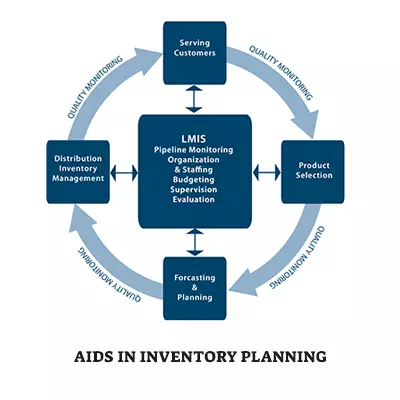 The Inventory Management Software strikes the right balance between demand and supply. As it provides a fair understanding of the stock’s availability and demand of the customers. Thus, an organization can easily fulfill the demands of the customers without lacking behind in the stocks. Hence, the plans can be formulated for overstocking or obsolete items of the stocks.
The Inventory Management Software strikes the right balance between demand and supply. As it provides a fair understanding of the stock’s availability and demand of the customers. Thus, an organization can easily fulfill the demands of the customers without lacking behind in the stocks. Hence, the plans can be formulated for overstocking or obsolete items of the stocks.
Efficient Order Management
Inventory Management System enables the brands to have in-time and accurate orders without any failure. As one can improve the inventory conditions by tracking the information from the Inventory Management Software. Thus, bid goodbye to the rough estimation of the stocks. As the efficient POS billing system never disappoints you.
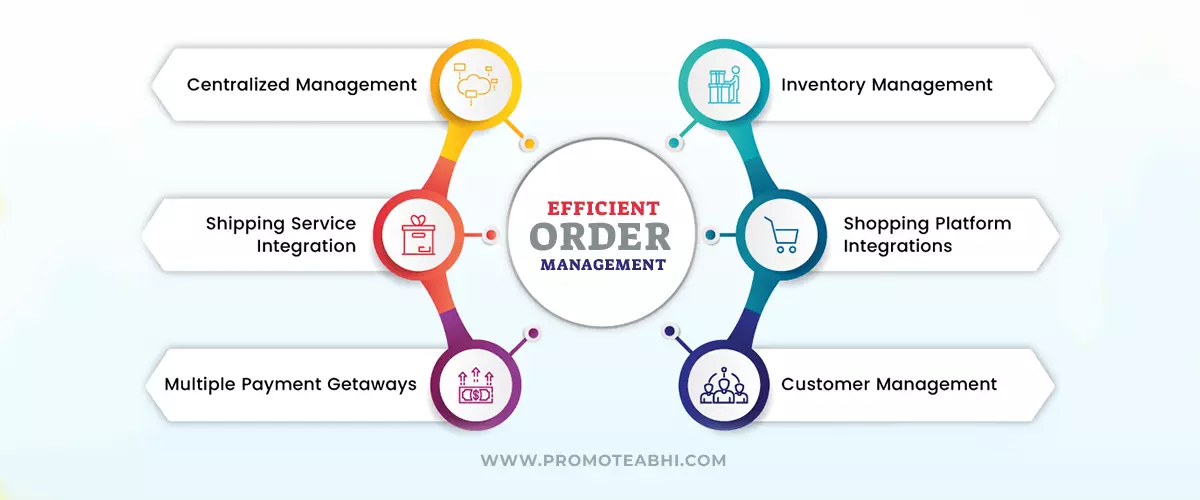
Meanwhile, the Billing Software aids in improved order accuracy through a manageable billing system. Thereby, one can run their business with efficacy and efficiency. As the Inventory Management Software lets you fix the problems and hidden inefficiency if any in the inventory.
Automated Processing
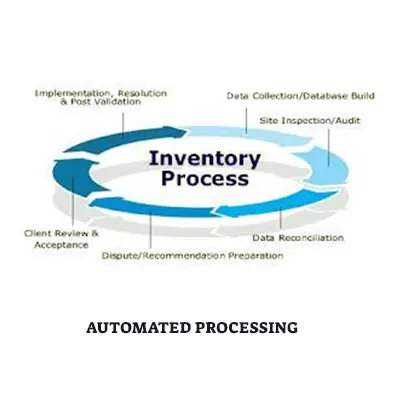 The Inventory Management Software is integrated with accounting software. Therefore, there are no chances of double recording of entries and human error. This way the equipped POS billing system leaves you bothered free of the stocks and manual recording of the data.
The Inventory Management Software is integrated with accounting software. Therefore, there are no chances of double recording of entries and human error. This way the equipped POS billing system leaves you bothered free of the stocks and manual recording of the data.
As the highly advanced automated processing provides the idea about the inventory turnover ratio, sales and provides alerts on low inventory. Lastly, you can assess the inventory status without any default or by hiring the staff for the Inventory Management System.
Profits with The Technologically Progressive Billing System
Summing up the aspects of the Inventory Management Software, an organization bags the profits with the technologically progressive billing system. Additionally, the business becomes productive and efficient. Likely, the speed up order processing results in customer satisfaction.
Thus, instead of juggling with inventory mismanagement having the Inventory Management System allows the businesses to focus upon the other important and relevant priorities for the business.


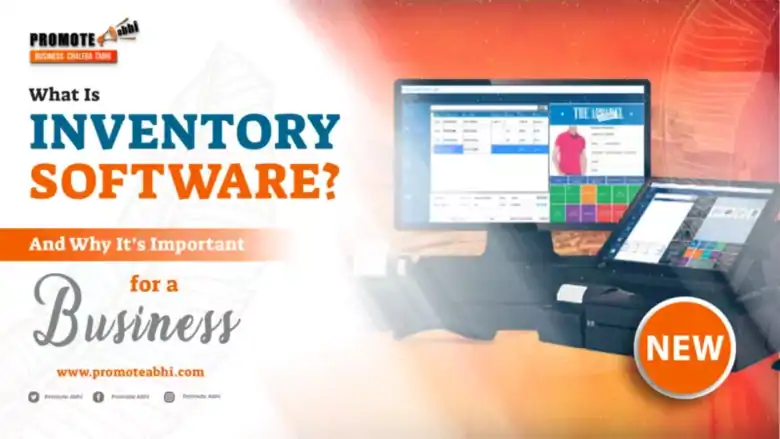









Comments